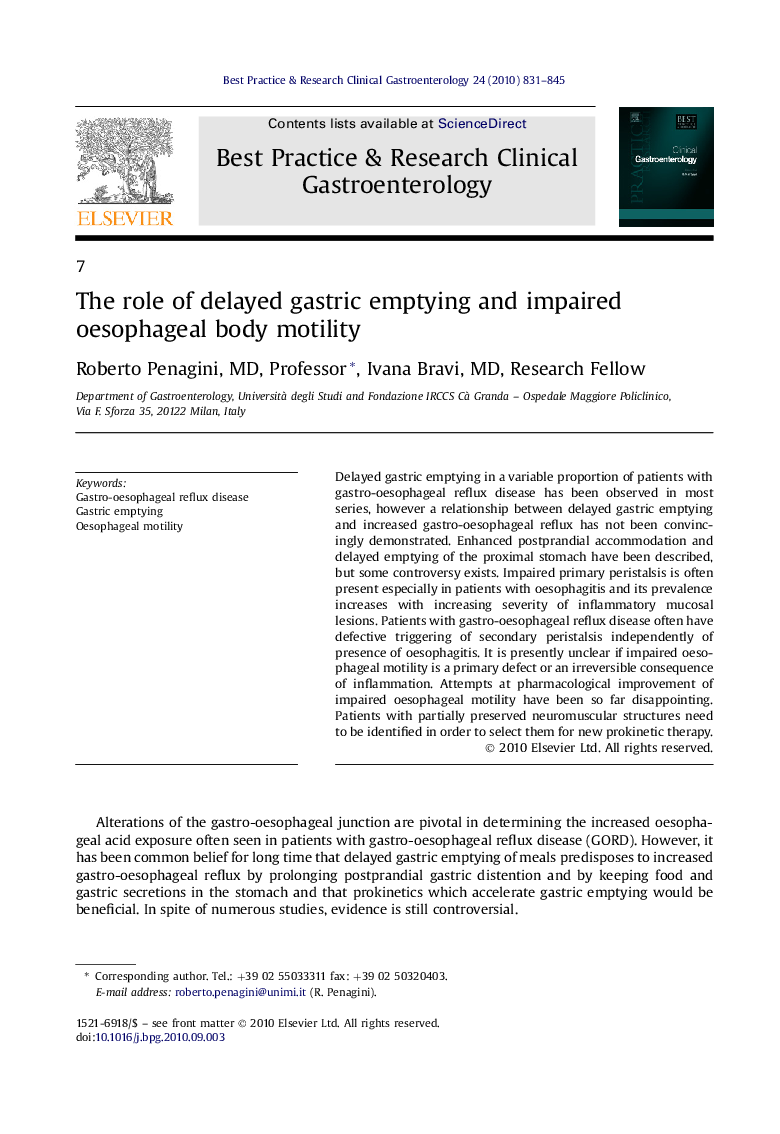| Article ID | Journal | Published Year | Pages | File Type |
|---|---|---|---|---|
| 3254377 | Best Practice & Research Clinical Gastroenterology | 2010 | 15 Pages |
Delayed gastric emptying in a variable proportion of patients with gastro-oesophageal reflux disease has been observed in most series, however a relationship between delayed gastric emptying and increased gastro-oesophageal reflux has not been convincingly demonstrated. Enhanced postprandial accommodation and delayed emptying of the proximal stomach have been described, but some controversy exists. Impaired primary peristalsis is often present especially in patients with oesophagitis and its prevalence increases with increasing severity of inflammatory mucosal lesions. Patients with gastro-oesophageal reflux disease often have defective triggering of secondary peristalsis independently of presence of oesophagitis. It is presently unclear if impaired oesophageal motility is a primary defect or an irreversible consequence of inflammation. Attempts at pharmacological improvement of impaired oesophageal motility have been so far disappointing. Patients with partially preserved neuromuscular structures need to be identified in order to select them for new prokinetic therapy.
